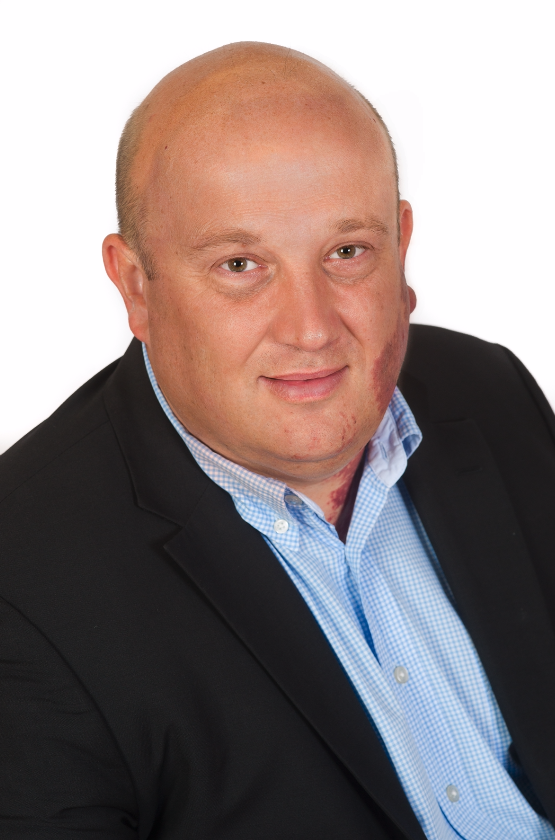The consulting industry is in a time of flux and needs to work hard to overcome negative perceptions – but those who adopt the true relationship driven consulting and wrap this around new technologies and expertise will drive better behaviours in the industry, says Mark Palmer
It’s time to reinvent consulting. The new normal of consulting is an industry that combines traditional consulting with managed services and is moving from a time and materials approach to an outcome-based fee structure. It’s an industry that increasingly focuses on partnerships between multiple experts to ensure the best end result for the client. This new era will be motivated by purpose- led, relationship driven consulting, and will put the client at the forefront of all decisions. This new era will rebuild trust in an industry that has suffered from negative press.
The traditional consulting business model has always been based on two principle ideas; firstly, hiring high quality people and secondly, charging clients a fee based on time for gaining access to this talent. This agenda is generally fuelled by a focus on ‘profit over purpose’ and can drive the wrong behaviours. Unfortunately, this way of working has negatively impacted perceptions of the consulting industry overall and tarnished some of the great work that has been done. We believe it is therefore time to focus on client first, rather than a self serving business model.
And we are not alone in this thinking. Pat Lynes, a business transformation consultant and author of The Interim Revolution, agrees. As he contends in his recent book: ‘Many executives feel that consultancies don’t bother to align themselves with the wider business culture which creates conflict and attrition. What’s more, consulting methods tend to be quite outdated, rigid and not particularly responsive.’
A move to managed services
While the consulting industry has historically delivered services on a time and materials basis, industry evidence now shows that clients are tired of this outdated approach. When clients buy on a time and materials model, it can feel as though there is no real accountability for the firm delivering the work, even if there might be accountability for individual consultants working on the project. One thing is for certain and that is that clients don’t want to pay for consulting services for the sake of it: they want to pay for outcomes, and most importantly, they want the consultants to back themselves in what they say they will deliver. They want their consulting partners to have ‘skin in the game’.
We can see why this makes many consultants nervous, especially if they aren’t set up to do this and it’s not in their DNA. But consulting firms should feel reassured that there are multiple ways of achieving outcome-based relationships with clients, such as a gainshare model or success fee approach.
Here at Gobeyond Partners, we have definitely found clients have a real appetite for managed services. So much so, that we have developed something called the ‘customer closeness centre’, where we embed a facility into a client organisation to help deliver improvements on an ongoing basis. Our clients often remark that this type of service is a very easy thing to buy, because we operate on a ‘gainshare’ model. This means they can ensure they’re making a return, without having to put large amounts of capital at risk.
As with anything however, consulting firms will need to be cautious that they take a balanced approach to this. Being too outcome-focused can often be at the detriment to client experience and getting a good ROI is not always the same as ‘doing the right thing’. For example, the extreme of this in a cost-reduction scenario would be to ‘slash and burn’. The key here is that the consultants align their success with their client’s success, putting people first, rather than prioritising their own ends.
Focus on the people
Alongside a move towards managed services and outcome-based fees, we are also very aware that when it comes to consulting, ‘people buy people.’ High employee churn at many consulting firms, combined with more junior employees working on client accounts has resulted in consulting fatigue. This has to change. The traditional consulting business model is quite an aggressive pyramid (the up or out culture prevails), with junior consultants learning their trade on client projects and billing them for the privilege. The new normal of consulting needs to offer the client more immediate value when it comes to the consultants working on their account and this means greater experience is required.
While recruiting we tend to be quite industry agnostic, but rather look for two key characteristics that I personally believe are essential in business; empathy and drive.

In having these attributes, and of course, a number of years of experience, it is our belief that they will be able to deliver ‘relationship driven consulting’. This is essential to reinventing consulting and reassuring clients that the consultant is putting them at the centre of all their decisions.
Generally, a consultant focused on delivering relationship driven consulting would demonstrate five personality traits when working with their clients, these consist of:
- Authenticity: the client is the hero of the consultant’s narrative. This means that the value the consultant adds to the client is inferred, rather than explicit. A good consultant should listen, advise and authentically help the client to get themselves to where they need. They should not build up a culture of self-reliance.
- Vulnerability: I think there is a view that consultants come out of a cloning tower; they wear a power suit, drive a BMW and carry a Montblanc pen. This is far from true. Management consultants come in all shapes and sizes, but certainly, the very best of them are imperfect. Showing vulnerability as a consultant – that you have a life outside of work, don’t always know all the answers, do worry about things – are all part of being a human being and this will resonate with the client.
- Credibility: a consultant will of course need to know their sector and topic inside out. There is ‘mastery’ in consulting and the senior relationship manager will need to be able to communicate succinctly the essence of the proposition in a way that a C-suite client will consume it.
- Trust: as expected, integrity is key. Consultants will need to be transparent and open. Consulting is not a transaction – those intangibles, such as ‘are you acting in my interest?’ are essential. There is no doubt that using industry acronyms and purposefully vague descriptions will erode integrity, and this is a surefire way to lose trust.
- Natural charisma: some people have a presence or charm; they are just born with it. This of course gives them power, but the key is that they don’t misuse this power.
It’s time to consider HX
The final piece of the puzzle to reinvent consulting, has to focus on the symbiotic relationship between humans and technology. We believe that technology is about ‘taking the robot out of the human’. What do I mean by this? We often see organisations thinking technology first, rather than customer-first, driven by the need to reduce costs. The immediate future is not going to mean (as the media landscape might suggest) that technology will replace humans, but rather the two augmenting each other and working collaboratively to provide the best possible service to customers.
Those consultants who will be the most successful will need to look at automation for their clients through a more human lens, or what we call HX. HX is all about putting human experience at the heart of everything: taking an end-to-end view of the customer journey, leveraging digital technologies with a purpose to augment human interactions, and engaging colleagues on this journey.
A look to the future
Over the next three to five years, we believe more and more consulting firms will move towards a managed services approach. We also believe that the ability to bring together a full set of solutions to deliver transformation is less likely to be delivered by the client’s own team given the increased number of complex, component parts. What clients do want is both someone to help make sense of this, as well as a partner to share the risk.
Another key driver of change in the industry that will come to the fore is that consulting firms won’t hold all of the knowledge in-house themselves either. Partnerships between tech companies, recruitment firms and many others, will be paramount to deal with the more complex and bigger ticket programmes. A cookie cutter approach simply won’t be enough. Once again showing reciprocity, building trusted relationships and putting the client (and their end customer) at the centre of all decisions will be essential.
Certainly, the consulting industry is in a time of flux and many of us will need to work hard to overcome some of the negative perceptions. But those who adopt the true relationship driven consulting and wrap this around new technologies and expertise will drive better behaviours in the industry and will ultimately reap the rewards in 2020 and beyond.

Mark Palmer is the CEO of Gobeyond Partners (part of Webhelp), a market leader in customer experience, customer journey design and operations transformation.
Mark started his career in France working for Valeo (a CAC 40 automotive group) where he spent 9 years of his career. Mark started in production management, established a successful business improvement academy in Paris, became the Key Account Director for Japanese manufacturers in Europe and went onto run the UK Division. His final role at Valeo was as the global management development director.
Mark joined OEE Consulting in 2001 and became MD in 2008. From 2008 > 2018, the firm grew into a mid-tier player and quintupled in size – working with some of the UK’s best-known organisations. The business was sold to Webhelp in 2018. OEE then merged with Webhelp’s professional services business to form Gobeyond Partners.
Mark has a degree in French and an MBA from Cardiff Business School. He is also on the board of logistics and operations management faculty at Cardiff Business School.



